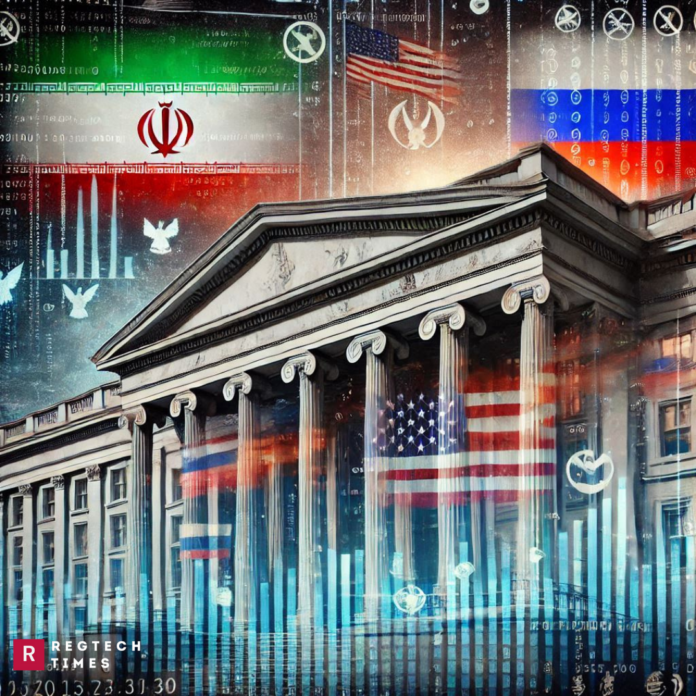On December 31, the United States imposed strict sanctions on organizations in Iran and Russia. These entities were accused of trying to disrupt the 2024 US presidential election through election interference. According to the US Treasury Department, these groups sought to create divisions among Americans by generating political tensions and influencing voters’ decisions through targeted operations.
Accusations of Election Interference
The sanctioned entities include a subsidiary of Iran’s Revolutionary Guard Corps and a Russian organization connected to their military intelligence agency. These groups reportedly engaged in sophisticated campaigns aimed at spreading false information and manipulating public opinion on key political matters. This bold step by the US government underscores the increasing threat posed by foreign election interference to democratic institutions and processes.
In recent years, efforts to undermine elections have become more complex and pervasive. By targeting emotions and exploiting societal divisions, these foreign actors attempt to weaken the confidence of citizens in their democratic systems. The latest sanctions reflect the US government’s determination to confront election interference tactics and protect its electoral framework.
Methods of Influence and Disinformation
Details about the operations of these sanctioned entities reveal an intricate web of disinformation strategies. The Cognitive Design Production Centre, one of the implicated organizations, had been planning influence campaigns as early as 2023. This group employed various methods to shape public perceptions, leveraging advanced tools and techniques to achieve its objectives.
Another significant entity, the Moscow-based Centre for Geopolitical Expertise (CGE), played a central role in disseminating misleading content. This organization focused on circulating false narratives about candidates in the 2024 election, aiming to mislead the public. A notable aspect of their operation was the production of deepfake videos, which are digitally manipulated visuals designed to portray individuals in misleading or damaging ways.
Among the examples cited by the US Treasury Department was a manipulated video created by CGE. This video contained baseless accusations targeting a vice-presidential candidate. While the specific individual was not identified, the video’s intent was clear: to influence voter opinion through deceit. Such sophisticated tactics demonstrate the evolving challenges in combating digital misinformation and maintaining the integrity of democratic elections.
Beyond deepfake creation, these groups also funded and directed online campaigns that amplified divisive rhetoric. By exploiting existing social and political divides, they sought to weaken trust among voters and create an atmosphere of confusion and mistrust. The disclosures emphasize how important it is to maintain constant watchfulness and take preventative action against such risks.
Strong US Response
In response to these activities, the US government implemented stringent sanctions to hold the involved entities accountable. Acting Undersecretary for Terrorism and Financial Intelligence Bradley Smith stressed how grave these acts are. He noted that foreign governments—specifically those of Iran and Russia—targeted US electoral processes and institutions in an attempt to sow discord among the American population.
The sanctions aim to disrupt the operations of these entities, sending a strong message about the consequences of undermining democratic systems. By freezing assets and restricting their activities, the US seeks to limit their ability to carry out further interference campaigns. These measures form part of a broader strategy to safeguard elections from external manipulation and counter election interference effectively.
This decisive action underscores the importance of addressing the challenges posed by advanced technologies such as deepfakes. As these tools become increasingly accessible, the ability to spread disinformation grows, posing significant risks to the credibility of electoral processes. Election interference through these sophisticated methods demands vigilant countermeasures to protect democratic institutions. The US government’s firm stance reflects its commitment to countering these threats and ensuring that the voices of voters are protected.
These developments serve as a stark reminder of the evolving nature of threats to democracy. The combination of sophisticated digital tools and targeted disinformation campaigns highlights the complexity of defending democratic institutions. By remaining vigilant and proactive, nations can work to uphold the principles of fairness and transparency in their electoral systems while combating election interference on all fronts.


